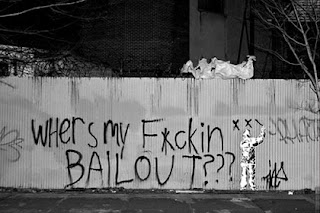Alright, Forgiveness, is it actually something you must do in order to ‘move on’ or be at peace with yourself or being a greater person? Often preached in agony aunt columns, advice from someone who has already achieved ‘greatness’, religious lectures, self-help courses, Deepak Chopra-Robin Sharma genre books and articles, does forgiveness hold its ground on integrity’s scale. Is it a ‘justified’ action?
There is a difference between when a person commits a mistake and when things go wrong when that person knew there was a chance of it. I am of course talking about the difference between an honest mistake resulting into an unexpected outcome and the one where such an outcome was expected and was known to the person before he/she made the decision to go ahead.
Yes, it is more detailed than it should be and I know I’ve offended your sense of understanding by explaining it. But what baffles me is, while ‘Forgiveness’ is a just and ‘valid’ thing to do with someone who committed an honest mistake, why is it given to someone who knew what he/she was doing and was well aware of possible outcomes.
The moment somebody’s wrongful action, which was a deliberate decision on the part of the doer, is pardoned, there is an imbalance in the risk-return continuum of the nature and the person who has forgiven is thrown out of integrity. Really? Isn’t he/she being great in forgiving someone, or, what’s the point in dragging a negative emotion forward, or perhaps, Peace, eh?
Forgiving someone who’s wronged is not being great, it is being unjust to someone who is righteous; it is an insult to the righteousness itself. If someone is late for a deadline, then dissolving the deadline and accepting the early and the late alike is an insult to the ones who did it on time, same goes for punctual ones, loyal ones and so on…
The whole thing looks really clear with a lens of objectivity and an analogy of finance principles. Anyone who carries more risk knows his reward and punishment can vary to extremes, then why does he/she be let off the risk in case of a failure. What is this in case of forgiveness?
A moral bailout, that’s what it is.
Someone who went steady, decreasing his risk, hedging it, sacrificing his maximum payout, should be made to take the same reward as someone who went zooming by, throwing caution, morals and everything to the winds to collect the maximum reward and failed but was pardoned, bailed out, forgiven?
But who wants objectivity when you can play around in the huge spectrum of gray area created by subjectivity? Amazing tool to hide your failures and escape.
Someone who has wronged, why isn’t he/she made to live its consequences? You knew what you were doing, right? So why are you seeking forgiveness? Why don’t you go ahead and live with what you signed up for? And you, the epitome of forgiveness, whom will you go to, to ask for forgiveness for this injustice you are causing to righteousness? How would you be ‘at peace’ when you are going out of integrity? How can you ‘move on’ by messing up somebody’s perfect moves for somebody’s wrong ones?
Oh, and it is definitely not being great, it is living with injustice, perseverance perhaps, stupidity, courage even, but definitely not greatness, and injustice for sure.
Photo Courtsey: www.renegadefuturist.com

